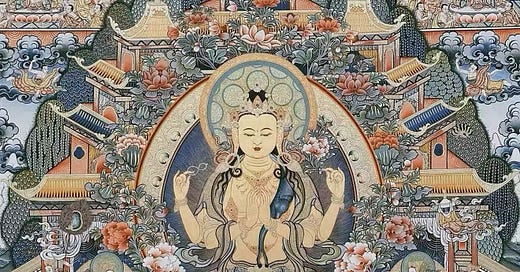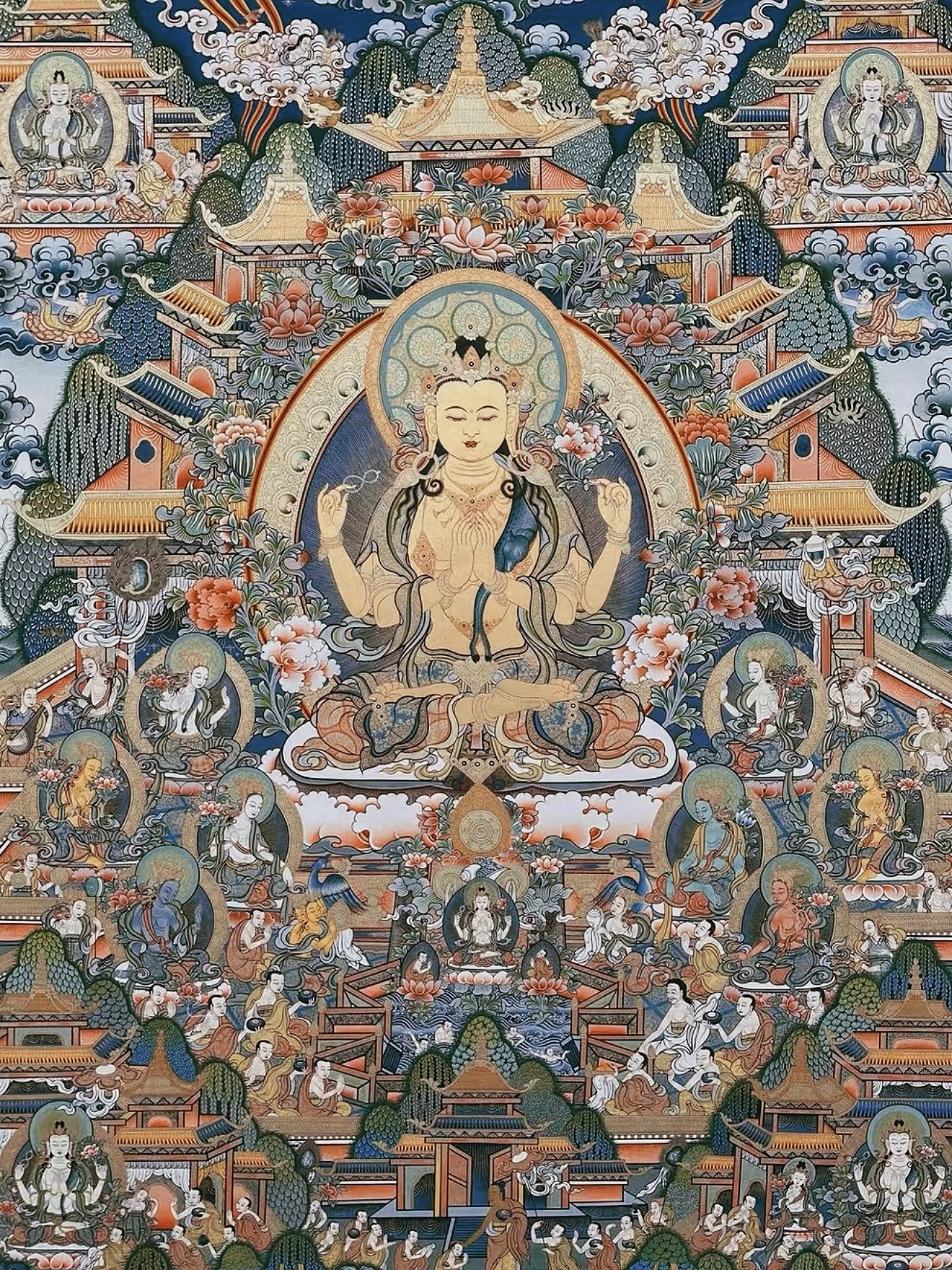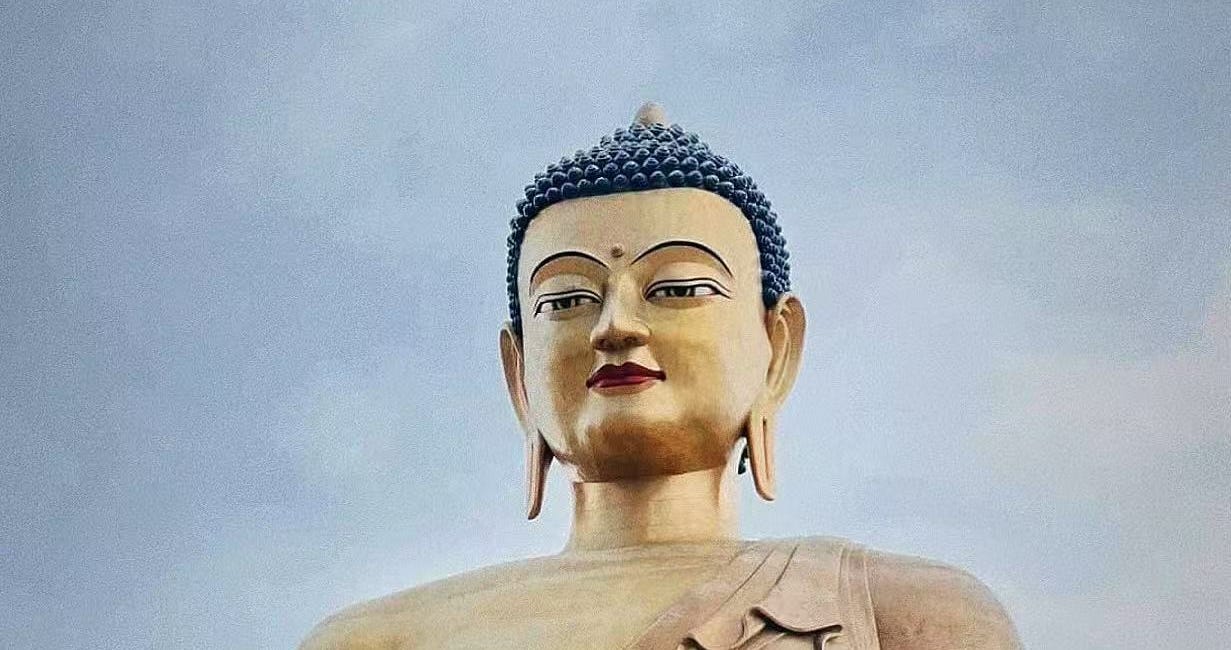Ksanti Paramita: The First Poison of Spiritual Cultivation—Hatred
Hatred—The Destroyer of Merit: Suffering for Self and Others.
All Buddhist practices and their resultant attainments must rely solely on wisdom (prajñā) and the mind of enlightenment (bodhicitta). This unique and incomparable essence is what distinguishes Buddhism from all other paths.
—Neo Shakya
🔔The following content is excerpted from Neo Shakya’s teachings on the Dharma. Suggested Readings: Guru-Disciple Dialogue: No-Self—Do I No Longer Exist?
⭐️ The Concept of Emptiness
Emptiness is a key point, which we will gradually understand through studying philosophical tenets and Madhyamaka. However, merely studying it does not mean we can realize it immediately, and we shouldn’t lose heart if we haven’t attained realization—it’s inherently difficult. Therefore, we must accumulate merit step by step along the way.
⭐️ The Hindrance of Self-Grasping in Hinayana Practitioners
The emphasis on forbearance (kṣānti) is primarily from the Mahayana perspective.
In the Lamrim, the discussion of the Four Noble Truths is where Buddhism truly begins. The divergence lies in spiritual lineage.
Earlier, we mentioned Buddha-nature, explaining that the Hinayana and Mahayana lineages differ. This difference determines the distinct paths they follow over countless lifetimes.
For Hinayana practitioners, one major obstacle is their strong self-grasping, which becomes deeply ingrained.
Take Shariputra as an example—why did he regress in his practice? Though he was foremost in wisdom, his regression clearly wasn’t due to a lack of wisdom, so the key factor must be merit.
⭐️ The Connection Between Merit and Hatred
So what affects merit? Primarily, it’s due to heavy habitual tendencies of hatred from past lives. A strong hatred mentality destroys merit.
Strong habitual hatred also hinders the realization of selflessness. Therefore, hatred is the most poisonous affliction, and we must restrain it. Related emotions like jealousy must also be taken seriously—indulging in them is like leaping into a pit of fire.
⭐️ Recognizing Subtle Forms of Hatred
Hatred is a mind of rejection. It doesn’t always manifest as anger—anger arises when hatred becomes uncontrollable and must be vented. Hatred can remain buried deep inside, undetectable on the surface.
When hatred arises, the mind feels aversion, rejection, and discomfort.
A mere preference without emotional charge—such as disliking the color yellow or refusing to wear black clothes—doesn’t count as hatred, as there’s no agitated feeling like, "This clothing irritates me."
But if the dislike is unsettled, strongly aversive, and emotionally charged, then it has already become hatred. Thus, hatred can be subtle, but even at its most subtle, it is still relatively easy to recognize—through thoughts like "I don’t like this" or "I’m unhappy." There is a distinct sense of being unable to coexist with the object of aversion, a feeling that "I cannot peacefully share space with what I resent."
⭐️ The Destructive Power of Strong Hatred
The kind of hatred that destroys merit is particularly intense.
"Resentment" differs from "hatred". Resentment lingers—days later, when others have moved on, one still harbors bitterness. This is the most severe form, lasting longer and burning stronger; otherwise, it wouldn’t persist for so long.
Expressions like "deep-seated enmity," "blood feuds," or "a gentleman’s revenge is never too late" reflect extremely harmful mental states.
⭐️ The Karmic Effects of Hatred
Hatred leads to karmic results like:
unattractive appearance
social isolation
poor relationships
If one constantly harbors aversion toward others, others will naturally dislike them in return—a karmic echo.
In summary, hatred is the most destructive affliction, eroding merit.
Scriptures rarely mention other factors that destroy merit as prominently as intense, uncontrollable hatred.
While mild hatred is common to all, its strong form must be vigilantly restrained.
🌊Gratitude for your mindful attention. May these insights benefit your practice. The triple world is aflame with suffering, A burning house, perilous and foul— Where birth, age, sickness, death consume, And endless fires of anguish howl. —The Lotus Sutra 🪬Friends, if you feel drawn to the Dharma and have developed a sincere aspiration to study it systematically, please feel free to reach out to me. 🔔 Suggested Readings:
From Prince to Teacher: Why the Buddha Taught the Dharma?
Though Buddhist scriptures are as vast as the ocean, their sole purpose is to guide beings toward liberation (mokṣa) and omniscient wisdom (sarvajñatā). The Buddha never taught what is irrelevant to these goals.
Om Arapacana Dhih
Author: Neo Shakya
Editor: Arwen Candra
To the seekers of truth, let's forge a bond in this shared space!







This is all very true….but the political spectacle invites us to hate. In the cause of good, we hate all that seems evil and misguided. We take up a gauntlet! This is where healing needs to take place. It is war. By And in war, we must fight. Fight with peace in our hearts?